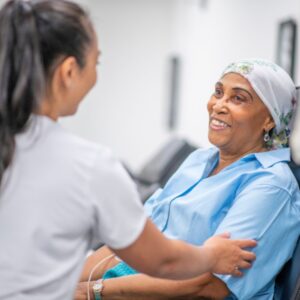Health Equity in Somatic Cell Gene Editing Research
Who is most impacted by these conditions? Could there be groups of people under-diagnosed that would change these demographics?
 To make strides in improving health equity in genomic medicine, it’s important to address gaps in the evidence base, reduce disparities in access to gene editing services, and build stronger infrastructure.
To make strides in improving health equity in genomic medicine, it’s important to address gaps in the evidence base, reduce disparities in access to gene editing services, and build stronger infrastructure.
Here are some suggestions for how researchers can think about health equity in their work:
- Prioritize recruitment of underrepresented participants over quickly reaching recruitment goals
- Investigate research questions of special interest to diverse and underserved populations
- Conduct clinical genomic studies in diverse healthcare settings
- Increase community engagement to build relationships, garner trust, and address local concerns
- Build on evidence base for cost-effectiveness and clinical utility of genomic tests
- Engage payers to promote evidence-based coverage of genomic services
Find more information at: Defining and Achieving Health Equity in Genomic Medicine – PMC (nih.gov)
 The Health Equity Research Impact Assessment aims to help research reviewers, researchers, academic institutions, and funding agencies to improve health equity in medicine and research. The assessment is composed of the following domains: Community Engagement and Research Partnerships; Recruitment, Representativeness, and Generalizability; Intervention Design; Interpretation and Contextualization; Dissemination of Research Findings and Community Benefit; Overall Impact on Health Equity.
The Health Equity Research Impact Assessment aims to help research reviewers, researchers, academic institutions, and funding agencies to improve health equity in medicine and research. The assessment is composed of the following domains: Community Engagement and Research Partnerships; Recruitment, Representativeness, and Generalizability; Intervention Design; Interpretation and Contextualization; Dissemination of Research Findings and Community Benefit; Overall Impact on Health Equity.
For researchers, they offer the following as examples for practical application of the assessment:
- Inform research planning processes, including revision of research objectives, study questions, and design to promote equity
- Identify needs and opportunities for interdisciplinary research collaborations to decrease the science-to-practice gap for under-resourced communities
- Identify opportunities for community partnerships to inform all research processes, increase generalizability, and ensure dissemination of findings to under-resourced communities
- Invite continual assessment at every study phase to enhance health equity impact
To view the assessment and learn more about how to use it, go to: Directing Research Toward Health Equity: a Health Equity Research Impact Assessment – PMC (nih.gov)
 Gene editing therapies hold great promise, but it is important to address inequities that exist with access to testing, diagnosis, and therapies. Health equity should be considered throughout the entire process from basic research to care delivery.
Gene editing therapies hold great promise, but it is important to address inequities that exist with access to testing, diagnosis, and therapies. Health equity should be considered throughout the entire process from basic research to care delivery.
Here are some key areas with health equity considerations that research programs can address:
- Create more diverse cohorts for rare diseases and gene-targeted therapy research
- Think beyond “inclusion only” as an end goal for addressing equity
- Move away from research on only one disease at a time and commit funding for resources/training opportunities around a wider spectrum of rare diseases
- Avoid assumptions regarding accessibility and equity associated with diagnosis and new therapies
- Establish a culture where equity and ethics are foundational and fully integrated into the development of research, translational, and care pathways
Learn more about addressing health equity issues in gene editing here: Gene‐targeted therapies: Towards equitable development, diagnosis, and access – Gaviglio – 2023 – American Journal of Medical Genetics Part C: Seminars in Medical Genetics – Wiley Online Library



